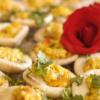-
Welcome to the eG Forums, a service of the eGullet Society for Culinary Arts & Letters. The Society is a 501(c)3 not-for-profit organization dedicated to the advancement of the culinary arts. These advertising-free forums are provided free of charge through donations from Society members. Anyone may read the forums, but to post you must create a free account.
-
Similar Content
-
- 3,890 replies
- 679,186 views
-
- 24 replies
- 4,371 views
-
- 5 replies
- 3,784 views
-
- 2 replies
- 19,856 views
-
- 103 replies
- 70,739 views
-
-
Recently Browsing 0 members
- No registered users viewing this page.





Recommended Posts